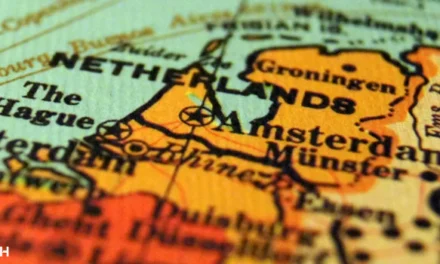Brazil and Israel have had a long and intricate relationship, shaped by historical events, political ideologies, and economic interests. This in-depth article aims to provide a comprehensive understanding of the dynamics between these two nations, shedding light on the extent of Brazil’s support for Israel.
Historical Context: Brazil’s Stance on the Israeli-Palestinian Conflict
To grasp the current state of affairs, it’s essential to delve into the historical backdrop. Brazil’s position on the Israeli-Palestinian conflict has evolved over time, influenced by various factors. Initially, Brazil recognized the State of Israel in 1949, just a year after its establishment. However, the country has also maintained diplomatic relations with the Palestinian Authority, reflecting its efforts to balance its stance on the conflict.
In the early years, Brazil’s approach was largely neutral, advocating for a peaceful resolution through negotiations. However, during the tenure of former President Luiz Inácio Lula da Silva (2003-2011), Brazil’s foreign policy took a more critical stance towards Israel, particularly regarding the Israeli settlements in the occupied Palestinian territories.
Key Historical Moments:
- 1947: Brazil voted in favor of the United Nations Partition Plan for Palestine, which paved the way for the creation of the State of Israel.
- 1975: Brazil voted in favor of the United Nations resolution equating Zionism with racism, a decision that strained relations with Israel.
- 2010: Brazil recognized Palestine as a free and sovereign state within the 1967 borders, a move that drew criticism from Israel.
Despite these fluctuations, Brazil has consistently advocated for a two-state solution to the Israeli-Palestinian conflict, calling for the establishment of an independent Palestinian state coexisting peacefully with Israel.
Economic and Trade Relations: A Mutually Beneficial Partnership
Despite the complexities of their political relationship, Brazil and Israel have maintained robust economic and trade ties. The two countries have signed several bilateral agreements to promote trade and investment opportunities.
Key Economic Ties:
- Trade Volume: In 2022, the bilateral trade between Brazil and Israel reached $1.2 billion, with Brazil exporting mainly agricultural products, machinery, and chemicals to Israel.
- Investment: Israeli companies have invested heavily in Brazil, particularly in the technology, agriculture, and renewable energy sectors.
- Cooperation: The two countries have established partnerships in areas such as innovation, research and development, and technology transfer.
Brazil’s vast agricultural sector and Israel’s advanced agricultural technologies have created synergies, with Israeli companies providing expertise and solutions to Brazilian farmers. Additionally, the two nations have collaborated on projects related to water management, renewable energy, and cybersecurity.
Military and Security Cooperation: Strengthening Strategic Alliances
Brazil and Israel have engaged in military and security cooperation, particularly in areas such as intelligence sharing, counterterrorism efforts, and defense technology. This collaboration has been driven by shared concerns over regional stability and the fight against terrorism.
Key Areas of Cooperation:
- Intelligence Sharing: Brazil and Israel have established mechanisms for sharing intelligence related to terrorism and organized crime.
- Counterterrorism Training: Israeli experts have provided training to Brazilian security forces in counterterrorism tactics and strategies.
- Defense Technology: Israel has been a major supplier of defense equipment and technology to Brazil, including unmanned aerial vehicles (UAVs) and surveillance systems.
This cooperation has been mutually beneficial, as Brazil seeks to enhance its security capabilities, while Israel aims to strengthen its strategic alliances in Latin America.
Cultural and Academic Exchanges: Fostering Understanding and Innovation
Beyond political and economic ties, Brazil and Israel have fostered cultural and academic exchanges, promoting mutual understanding and cooperation in various fields.
Cultural Connections:
- Brazilian-Israeli Communities: Brazil is home to one of the largest Jewish communities in Latin America, estimated at around 120,000 people. This community has played a significant role in bridging cultural ties between the two nations.
- Academic Collaborations: Brazilian and Israeli universities have established partnerships for student and faculty exchanges, joint research projects, and knowledge sharing in areas such as technology, medicine, and agriculture.
These cultural and academic exchanges have facilitated the exchange of ideas, fostered innovation, and contributed to the development of both societies.
Challenges and Controversies: Navigating Complex Geopolitical Dynamics
The relationship between Brazil and Israel is not without its challenges and controversies. Several contentious issues have strained the diplomatic ties between the two countries.
Key Challenges and Controversies:
- Israeli Settlements: Brazil has consistently criticized the expansion of Israeli settlements in the occupied Palestinian territories, considering them a violation of international law and an obstacle to peace.
- Voting Patterns at the UN: Brazil’s voting patterns at the United Nations have sometimes diverged from Israel’s positions, particularly on resolutions related to the Israeli-Palestinian conflict.
- Domestic Politics: Brazil’s foreign policy towards Israel has been influenced by domestic political dynamics, with different administrations taking varying stances on the issue.
One notable controversy occurred in 2014 when former Brazilian President Luiz Inácio Lula da Silva drew criticism from Israel for comparing the Israeli military operation in Gaza to the Holocaust. This led to a diplomatic row, with Israel declaring Lula a “persona non grata” and summoning the Brazilian ambassador.
Future Prospects: Strengthening Ties or Shifting Alliances?
As global dynamics continue to evolve, the future of Brazil-Israel relations remains uncertain. Several factors could shape the trajectory of this relationship in the years to come.
Potential Scenarios:
- Strengthening Ties: If Brazil’s current administration adopts a more pro-Israel stance, it could lead to closer diplomatic and economic cooperation between the two countries.
- Shifting Alliances: Alternatively, Brazil may choose to prioritize its relations with other regional powers or align more closely with the Palestinian cause, potentially straining its ties with Israel.
- Balancing Act: Brazil could also continue its efforts to balance its relations with both Israel and the Palestinian Authority, maintaining a neutral stance while advocating for a peaceful resolution to the conflict.
The future prospects will depend on various factors, including domestic political dynamics, regional geopolitical shifts, and the evolving situation in the Israeli-Palestinian conflict.
Key Takeaways and Final Thoughts
In this comprehensive article, we have explored the complex and multifaceted relationship between Brazil and Israel. While the two nations have maintained robust economic and trade ties, their political relationship has been shaped by historical events, ideological differences, and shifting foreign policy priorities.
Brazil’s stance on the Israeli-Palestinian conflict has fluctuated over time, with the country advocating for a two-state solution while also criticizing Israeli settlements and supporting Palestinian statehood. The relationship has faced challenges and controversies, such as diplomatic rows over controversial statements and diverging voting patterns at the United Nations.
As we look to the future, the trajectory of Brazil-Israel relations remains uncertain, with potential scenarios ranging from strengthening ties to shifting alliances or maintaining a delicate balancing act. Ultimately, the relationship will be influenced by domestic political dynamics, regional geopolitical shifts, and the evolving situation in the Israeli-Palestinian conflict.
It is crucial for both nations to continue fostering dialogue, mutual understanding, and cooperation in areas of shared interest, while also acknowledging and addressing the contentious issues that have strained their diplomatic ties. By navigating these complexities with diplomacy and a commitment to peaceful resolution, Brazil and Israel can work towards a more stable and mutually beneficial relationship.
FAQ: Does Brazil support Israel?
Brazil has historically maintained diplomatic relations with Israel. The level of support can vary based on different administrations and political factors.
What is the current stance of Brazil towards the State of Israel?
As of 2023, Brazil continues to have diplomatic relations with Israel. However, the specific policies and level of support may vary under different leadership.
Has Brazil ever had any conflicts with Israel in terms of foreign affairs?
Brazil and Israel have had some disagreements in the past, particularly related to issues such as the Israel-Palestine conflict. However, both countries have maintained diplomatic relations despite occasional tensions.
Who is the Brazilian ambassador to Israel?
The Brazilian ambassador to Israel represents Brazil’s interests in Israel. The specific individual holding this position can change over time based on government appointments.
What are some key events that have shaped Brazil’s relationship with Israel?
Events such as the Gaza war, diplomatic visits between leaders, and statements made by officials from both countries have influenced the dynamics of Brazil’s relationship with Israel.
How have different Brazilian presidents approached relations with Israel?
Presidents like Luiz Inacio Lula da Silva and Jair Bolsonaro have shown differing degrees of support for Israel during their tenures. Each leader brings their own perspective to foreign policy decisions.
Are there any specific issues that have strained the relationship between Brazil and Israel?
Issues such as disagreements over the handling of conflicts in the Middle East, statements made by officials on both sides, and differing stances on international matters can sometimes strain the relationship between Brazil and Israel.





